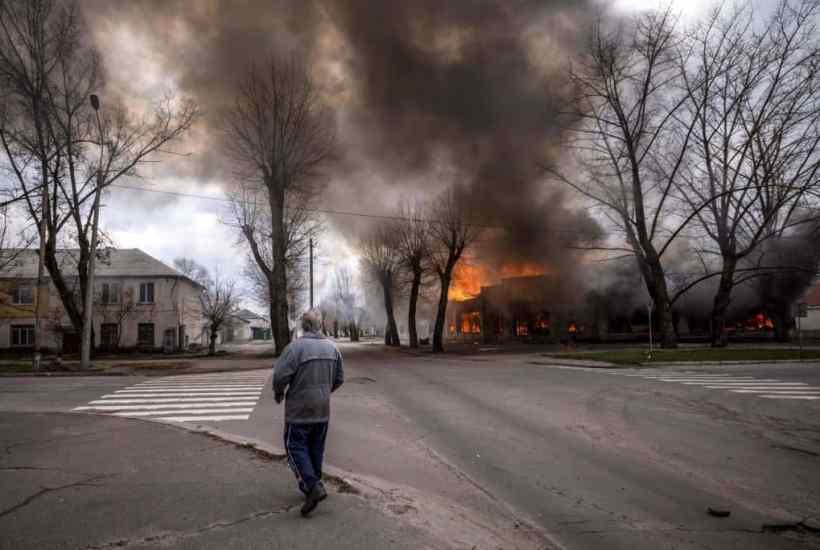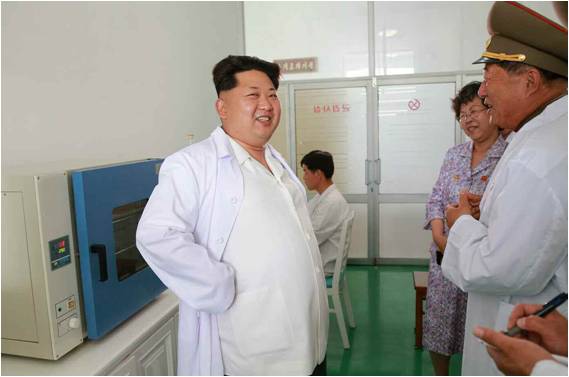In 1942, as Hitler’s forces swept through the Soviet Union, the Red Army went underground. Outside the city of Kerch in Crimea, 10,000 Russian, Belarusian and Ukrainian soldiers dug into the caves of a limestone quarry, ready to defend their position to the last man. Intent on flushing them out, the Nazis bombed them from the skies, flooded the complex and, according to testimony from survivors, pumped noxious gas into the tunnels.
That siege, 80 years ago, would have been the last time that chemical weapons were used in combat in Europe. Until, perhaps, yesterday. Just over 100 miles north of Kerch, in the Ukrainian city of Mariupol, locals have reportedly complained of lung and ear problems after a drone dropped its payload overhead. ‘Russian occupation forces used a poisonous substance of unknown origin against Ukrainian military and civilians in Mariupol, which was dropped from an enemy UAV,’ the notorious nationalist Azov regiment said in a statement on Monday. ‘The victims have respiratory failure and vestibulo-atactic syndrome.’
Mariupol, once home to nearly half a million people, has been turned into a smoking wreck in recent weeks. One of the largest settlements in the Donbass that had still been under the control of Kyiv’s forces since the start of the conflict in 2014, it was targeted first by Russian air strikes and quickly surrounded by tanks, troops and artillery. With its hardened defenders refusing to surrender, Moscow appears to have given the order to pound the city into submission, razing buildings, killing civilians and creating some of the most harrowing scenes of the invasion so far.
Because it is cut off from the rest of the country and facing heavy bombardment, the allegations that chemical weapons may have been deployed are nearly impossible to verify, with no independent journalists working in the area. Unsurprisingly though, the potential escalation has caused immediate alarm, with Anton Gerashchenko, an Interior Ministry official, writing that Russia had begun ‘openly crossing all boundaries of humanity and openly declaring it.’ Washington has called the reports ‘deeply concerning,’ while the UK has pledged to help establish their circumstances.
While Europe may not have seen this kind of warfare since the days of Adolf Hitler, for those studying Russian president Vladimir Putin’s playbook, the scenes might feel grimly familiar. In 2018, after his forces were sent to Syria to prop up the government of Bashar al-Assad, hospitals in the city of Aleppo saw a deluge of men, women and children struggling to breathe. Widespread reports that barrels of chlorine gas had been dumped over residential areas sparked an international outcry, with Moscow blaming rebel forces for the attacks and vowing to begin a massive bombing campaign that would oust them.
Despite the convenient pretext, investigations by the United Nations determined that Assad’s government had itself been behind a number of chemical weapons attacks, including those using chlorine gas and the nerve agent sarin. Russia, however, rejected the accusations as political, and consistently vetoed efforts to hold anyone responsible despite claims they were orchestrating a coverup.
Many, therefore, believe that Putin and his top brass are willing to tolerate unconventional warfare when waged by their allies, and will be asking whether Moscow would be prepared to sign off on such an attack in Ukraine. The country is a signatory to the 1997 Convention on Chemical Weapons and insists it has destroyed its stockpiles of mustard gas, sarin and other toxic agents, while accusing the US of dragging its feet on its own commitments.
For years though, there has been speculation that the Kremlin has maintained a secretive programme to keep hold of and develop some of the deadliest substances known to man. Those fears gained traction in 2020, when opposition figurehead Alexey Navalny was mysteriously taken ill on a flight from the Siberian city of Tomsk, screaming and writhing in pain in a video captured by a fellow passenger. After eventually being transferred to Berlin for treatment, his German doctors reported finding traces of the nerve agent Novichok in his test samples. The Soviet-made poison, understood to be in the possession of only Russia and Iran, is also said to have been used in the poisoning of former double agent Sergey Skripal and his daughter, Yulia, in Salisbury two years prior.
In many cases, though, chemical weapons don’t have to be high-tech compounds made only by a select number of laboratories – chlorine gas, for example, is relatively easy to get hold of if militaries can risk the ire of the world by using it. According to Pentagon press secretary John Kirby, US intelligence also has concerns ‘about Russia’s potential to use a variety of riot control agents, including tear gas mixed with chemical agents, in Ukraine.’
The reason that the use of this kind of warfare is an international taboo is because it indiscriminately maims civilians who have little chance to escape. While choking on the fluid filling your lungs after a chemical attack is a horrendous way to die, so too is asphyxiating on smoke in a burning building, starving to death in a besieged city or bleeding to death in the street. Given Moscow has demonstrated a clear willingness to target civilians during the war so far, using conventional weapons with devastating effect, some will likely question whether the use of unconventional ones would be a genuine escalation.
But it would. The red line for the use of chemical weapons is a firm one in the mind of most world leaders and US president Joe Biden has already pledged that Nato would ‘respond’ if Russia were to do so. With tensions at an all-time high between East and West, the Kremlin may think it has little to lose by further outraging those who are already outraged, but there is still much more that can be done to support Kyiv and punish Moscow, economically and militarily.
For example, Germany, which has resisted calls for energy embargoes because of its dependency on Russian gas, would find it far harder to resist such sanctions on grounds of self interest, given its own history of using chemical weapons in the second world war and during the Holocaust. Just a stone’s throw from Mariupol, the caves at Kerch stand as a reminder of the terror chemical weapons sow, and of how Russians were once on the receiving end of them.
Got something to add? Join the discussion and comment below.
Get 10 issues for just $10
Subscribe to The Spectator Australia today for the next 10 magazine issues, plus full online access, for just $10.



















Comments
Don't miss out
Join the conversation with other Spectator Australia readers. Subscribe to leave a comment.
SUBSCRIBEAlready a subscriber? Log in